21K School offers the Senior School Programme under Indian Curriculum through NIOS as a Private Candidate. NIOS, or National Institute of Open Schooling, is a National Board established by the Government of India. NIOS is an "Open School" to cater to the needs of a heterogeneous group of Learners up to the pre-degree level. It was started as a project with in-built flexibilities by the Central Board of Secondary Education (CBSE) in 1979. In 1986, the National Policy on Education suggested strengthening the Open School System for extending open learning facilities in a phased manner at the secondary level all over the country as an independent system with its curriculum and examination leading to certification.
Consequently, the Ministry of Education (MOE), Government of India, set up the National Open School (NOS) in November 1989. The pilot project of CBSE on Open Schools was amalgamated with NOS. Through a Resolution (No. F.5-24/90 Sch.3 dated 14 September 1990, published in the Gazette of India on 20 October 1990), the National Open School (NOS) was vested with the authority to register, examine and certify Learners registered with it up to pre-degree level courses. In July 2002, the Ministry of Education (MOE) amended the nomenclature of the organisation from the National Open School (NOS) to the National Institute of Open Schooling (NIOS) with a mission to provide relevant continuing education at the school stage, up to pre-degree level through Open Learning system to prioritised client groups as an alternative to the formal system, in pursuance of the normative national policy documents and in response.
NIOS operates through a network of five Departments, 23 Regional Centres, two Sub Regional Centres, two NIOS Cells, and more than 7400 Study Centres (AIs/AVIs) spread all over India and abroad. NIOS is the world’s most extensive Open Schooling system, with a cumulative enrollment of 4.13 million (during the last five years). Recently, NIOS has also started its own Virtual School.
NIOS collaborates with the Commonwealth of Learning (COL) and UNESCO. It also has study centres for Indian expatriates in the United Arab Emirates, Oman, Kuwait, Nepal, Canada, Kingdom of Saudi Arabia, Australia, United Kingdom, New Zealand, Malaysia, Singapore and the United States of America.
NIOS is accepted by all the universities and colleges in India. It is given equal recognition as CBSE and ICSE. You can take part in various competitive exams after completing 10+2 from NIOS like JEE MAINS AND JEE ADVANCE etc. It is also accepted by IIM and other prestigious colleges, per the last update.
Learners studying at 21K School can complete their studies online and appear for examinations conducted by NIOS as Private Candidates. Like any other Board Examination, NIOS would provide the Marks Sheet and Certification to Learners on successful completion of Board Exams in pen and paper mode at a NIOS study centre. At NIOS, Learners can study the following two-year courses:
Secondary Course
This Course is equivalent to the 10th standard. Learners can choose subjects from the Scheme of Studies offered by 21K School. However, they will be required to successfully complete a minimum of five subjects with at least one language or at most two languages, which is compulsory for certification. Board Exams are conducted at end of the second year only.
Senior Secondary Course
This Course is designed for those who have passed the 10th standard or equivalent examination from a recognised Board and would like to continue their education towards a Senior Secondary Certification, equivalent to the 12th standard.
Learners can choose subjects from the Scheme of Studies offered by 21K School. However, they will be required to successfully complete a minimum of five subjects with at least one language or at most two languages, which is compulsory for Certification. Board Exams are conducted at the end of the second year only.
Scheme of Studies
We believe that education in the senior grades should not only be career oriented but also flexible for the Learners. The curriculum should be flexible enough for the Learners to make informed career choices without closing doors for their passion or alternate options. Unquestionably, this is one of our largest life decisions. Come and take a peek at the variety of subjects we offer.
The Scheme of Studies for the Secondary and the Senior Secondary Courses is shown in the Table below. To obtain a Pass Certificate, a Learner must pass a minimum of five subjects including one or a maximum of two languages from Group 'A' and other three or four subjects from Group 'B'. However, a Learner is free to take up to two additional subjects and thus can choose a maximum of seven subjects.
Learners can pursue NIOS courses either full-time or part-time. Under full-time, the Learners will be studying any five of the following subjects, with subject code prefixed.
Secondary Course (Grades 9 and 10)
GRADE 9 & 10: Scheme of Studies |
|||
|---|---|---|---|
| Mandatory | Additional Language (optional) | Group B: Core Subjects (Minimum 3 subjects is mandatory) (Maximum 5 subjects from below) |
Vocational Subjects (Minimum 1 subject is mandatory) |
| English - 202 | Hindi - 201 | Accountancy - 224 | Basic Computing - 608* |
| Business Studies - 215 | Desktop Publishing - 613* | ||
| Data Entry Operations - 229* | Yoga - 614* | ||
| Economics - 214 | |||
| Entrepreneurship - 249 | |||
| Home Science - 216* | |||
| Indian Culture & Heritage - 223 | |||
| Mathematics -211* | |||
| Painting - 225* | |||
| Psychology -222 | |||
| Science & Technology -212* | |||
| Social Science - 213 | |||
Subjects with an asterisk *have a theory as well as practical work.
Senior Secondary Section(Grades 11 & 12) -
GRADE 11 & 12: Scheme of Studies (See foot notes) |
|||||||
|---|---|---|---|---|---|---|---|
| Mandatory | Additional Language (optional) |
Core Subjects | Vocational Subjects (Minimum 1 subject is mandatory) |
||||
| Group A | Group B | Group C | Group D | Group E | Group F | ||
| English-302 | Hindi-301 | Mathematics -311 | Physics -312* | Chemistry - 313* | Biology-314* | Computer Science - 330* | Computer & Office Applications-631* |
| Home Science - 321* | History-315 | Political Science - 317 | Accountancy -320 | Sociology-331 | Data Entry Operations - 632* | ||
| Psychology - 328 | Environmental Science -333* | Mass Communication - 335 | Intro to Law-338 | Web Designing & Development-622* | |||
| Geography - 316* | Library and Information Science -339* | ||||||
| Economics - 318 | |||||||
| Business Studies- 319 | |||||||
| Painting -332* | |||||||
| Data Entry Operations (Core)- 336* | |||||||
Foot Note:
Learners studying with another school, home-schooled or as a private candidate may opt to study one or more subjects online through 21K School. Learners studying under any other curriculum can also register with us. This broadens opportunities for Learners to demonstrate their learning, particularly for university undergraduate programmes. A more comprehensive choice of subjects at the Secondary level will help Learners select the right combination of Senior Secondary subjects. By taking advantage of this option, Learners will be able to obtain the necessary academic qualifications while still being able to attend classes at their regular school. Additionally, this will provide an opportunity for those unable to sit for the other Board Examinations due to illness or other reasons.
The ability to study selected NIOS subjects online also opens up opportunities for retaking examinations if a Learner needs to improve their score to meet University admission requirements. In addition, it allows Learners to complete their courses earlier than the traditional school calendar if they are ahead in their learning. All these reasons make 21K School an attractive option for Learners who want more control over their educational destiny.
In case the Learner wishes to use the NIOS certificate for higher studies, it is in his/her own interest that he/she keeps in mind the requirements of the Boards/Universities where he/she wishes to join after passing the Secondary/Senior Secondary course from NIOS. Some Boards / Universities require specific subject combinations for admission in the Institutions affiliated with them. For example, for Medical courses, various institutes will expect the Learner to have passed with a combination of Chemistry, Physics, Biology/ Bio-technology and any other two languages. A Learner who wishes to join a formal School Board in class XI after passing the NIOS examination of class X may opt for subjects combinations (in 5 or 6 subjects as the case may be) which are acceptable in class XI by such formal School Boards, without prejudice to the rights of NIOS.
Important Note to Scheme of Studies:
We followed NIOS course materials and NCERT books were required for core subjects.
Transfer of Credit (TOC):
Ex-Secondary/Senior Secondary learners of the Recognised Boards of School Education, who have passed in at least one subject but have not qualified in the course, may seek admission in the respective course of NIOS and avail of the facility of TOC in maximum of two subjects.
Dual Enrolment and Part Admission:
Under this provision, in case a learner is studying in a regular school, or has already passed the Secondary/Senior Secondary examination or any other higher course from any recognised Board/University, he/she may opt for upto four subjects of his/her choice, to update knowledge and educational qualifications. However, on passing, only the Marksheet will be issued and no other Certificate will be issued. The entry requirement for Dual Enrolment and Part Admission will be as per NIOS admission rules.
Admission Criteria & Entry Requirements:
The admission criteria at 21K School are linked to the criteria defined by NIOS for its examinations. NIOS conducts exams twice a year, in April/May (Block 1) and October/November (Block 2) There are four streams of NIOS registration for examinations catering to learners with different needs. The admissions in these four streams are mutually exclusive i.e., learner can opt for one of them only.
21K School only provides schooling for Stream 1 Learners only. This stream for Online Admission at 21K School is open for all the Learners as per the laid down eligibility criteria for the Secondary and the Senior Secondary courses. Learners considering the option of Transfer of Credits are also eligible for admission at 21K School.
21K School does not accept Learners eligible to enrol in Stream 2. These are Learners who have already passed the Secondary/Senior Secondary Examination from the recognised Board and wish to take ‘Part Admission’ in one subject or up to 4 subjects for updating their qualification, or Learners who had appeared but could not clear or who were eligible but could not appear in the Public Examination of the Secondary/ Senior Secondary level from any recognised Examination Board.
21K School only enrols Learners in Grade 9, and Grade 11 only. These Learners must study for two years to get certificates from NIOS as private candidates. In exceptional cases, where Learners who have studied and registered for exams in Grade 10 and Grade 12, may be considered subject to the approval of the Admissions Team led by the Academic Leadership Crew at 21K School.
The following are the eligibility criteria of NIOS for appearing on Board / Public Exams.
Secondary:
The minimum age to take admission in the Secondary Course is 14 years as of 31st July (for Block 1) or 31st January of the next year (for Block 2).
A learner who has passed class VIII and has valid proof of attaining 14 years of age can apply for registration to the Secondary Course.
A learner giving a self-certificate, "I have studied enough to be able to pursue a secondary course", is also eligible for admission to the Secondary Course.
A learner who has studied at the secondary level can also seek admission to NIOS either to complete his course or to improve his performance.
Sr. Secondary:
The minimum age to take admission in the Senior Secondary Course is 15 years as of 31st July (for Block 1) or 31st January of the next year (for Bock 2).
To take admission in the Senior Secondary course, the learner must have passed the Secondary course from a recognised Board, and there must be at least two years gap between the Grade 10 and Grade 12 examinations.
Important Notes:
Is a Transfer Certificate (TC) mandatory at the time of admission?
No, TC is not a mandatory document unless specified by the NIOS team in special cases. In these cases, you may also provide a self-declaration letter if you do not have TC.
I was home-schooled till the 8th and now applying for NIOS for the 10th. I don’t have a Roll No. What should I do?
If you are homeschooled till Grade 8, you can register with 21K School as NIOS allows the option of self-declaration stating, ‘Certified that I have studied enough to be able to pursue the Secondary Level course.' 21K School reserves the right to conduct diagnostic tests in such cases as well.
Can a learner take direct admission into a senior secondary course without secondary?
No. To take admission to the senior secondary course, the learner must have passed the secondary course from a recognised board, and there must be minimum 2 years gap between these secondary and senior secondary exams.
In the words of the New Education policy, “Learning Should be Holistic, Integrated, Enjoyable, and Engaging.” While NIOS offers flexibility in choosing subjects, admissions and examinations. We at 21K work intensely towards the child’s holistic development. While many of us might wonder what NIOS looks like in 21K School, here is what we do to reimagine learning in open schooling.
Skill-based learning:
Skill-based education empowers Learners to take ownership of their learning, reducing learning gaps. Approaches to teaching and learning are deliberate strategies, skills and attitudes that permeate the teaching and learning environment. These approaches and tools, intrinsically linked with the Habits of Mind, enhance Learner learning and assist Learner preparation for boards and beyond. We offer a variety of assessments and hands-on activities to give Learners control over their learning. Through skill-based learning, Learners become successful leaders in their chosen fields. Traditionally, these experiences have been overlooked in education. Therefore, Learners have the opportunity to acquire skills and use them in a real-world environment that is more effective and purpose-driven and helps them to receive a clear objective and a vibrant culture.
Habits of Mind:
The Habits of Mind are a set of 16 problem-solving, life-related abilities that support strategic reasoning, insightfulness, perseverance, creativity, and craftsmanship. They are essential for successfully navigating society. 21K School strives towards becoming a Habits of Mind School and trains its facilitators, which translates into the Learners’ behaviour. We strongly believe empowering educators and education is the first step towards a career. We put great emphasis on developing our pupils into flexible, creative and self-directed Learners. As the HOMs are an integral part of our curriculum, we work towards inculcating these habits in their school life, making them successful people, and they shall reap its lifelong benefits.
Career Pathway:
Positive Learner development includes a career pathway to success. According to research, Learner’s motivation and academic performance increase when they see the value and relevance of their education. We give immense opportunities to our Learners to discover who they are through activities like Career talks, Lit fest, Shark tank, TedEd internships, and so much more. With such activities, they are exposed to a wide range of career possibilities which help them to select options that align with their interest, skills or work values. Our Career Counsellors chalk a clear career pathway for wach Learner based on their personality traits, academic performance and career interests. Whether you are an upcoming sportsperson or budding artist or considering a good academic path in India or abroad, we have you covered.
Inclusion of cutting-edge technology and applications:
Technology is widely employed by professionals in various disciplines and sectors, as we know. Learners feel more at ease and acquainted to begin their careers, thanks to the extensive use of technology in the classroom. We encourage collaboration among Learners with different learning styles, which helps improve class interaction.
Today's youth is accustomed to using technology from an early age. Learners feel confident in acquiring new content when we teach new ideas or subjects using methods they have already mastered. They feel so empowered to assist their peers in learning. To prepare Learners for their practical assessments, we emphasise virtual labs. We also have a robust, well-managed learning management system (LMS) where Learners can track their development in terms of assignments, attendance, and other activities.
Personalised and Flexible Learning:
We support personalised learning and use well-designed rubrics that are effective and efficient tools which allow for objective and consistent assessment of various performances, assignments, and activities. The LMS helps Learners participate in live classes, conduct experiments, explore various resources in a digital library, and maintain text communication with their facilitators. Unable to attend the class? Not a problem. We also have all our live sessions recorded for the Learners, which Learners can access anywhere, anytime. Isn't that incredible?
Learning Community:
We believe in creating a community and a sense of belonging. Our Learners at 21K school believe they are an important part of their academic community and are accepted, appreciated, and included by their facilitators and peers. They have enhanced academic performance due to their motivation to learn and participate in their course, which increases attainment and progression. According to research, creating a sense of belonging among Learners is key to any effective Learner retention plan. We also have a separate community for parents known as the 21K Social, a community specially designed for parents’ networking. It helps our parents to stay updated, connect and share their wonderful ideas in the 21K community
Fostering responsible Leaders of the world:
The Learners must be conscious of their surroundings and be aware of their ability to make a difference. We work to develop future leaders who are conscious, accountable, and committed to the idea of the earth as a global village. We hold events like Model United Nations, Shark tank, Social Awareness Week and Joy of Giving, where Learners share fantastic and sustainable development ideas for improving the world. To emphasise the value of being green and its effects in the future, we offer them opportunities to make real-life applications and connections for, e.g. plantation and water bodies clean-up drives.
Special Education Needs
In its simplest form, Inclusive Education refers to a learning environment where Learners with and without comorbidities attend courses together. The concept of inclusion refers to equity and equality, i.e., giving all kids the same chances while accepting their concerns. Learners from different backgrounds and physical and cognitive challenges share the same classroom at 21K School. The curriculum is designed to give every Learner, regardless of their obstacles, an equal chance to learn, develop, and thrive. Learners with special needs can engage with and learn from their peers and develop in a setting where Learners learn to embrace and cherish their differences thanks to the Learners' encouragement to participate and collaborate and difficulties and developing strategies to support them in dealing with those.
The Learners with disabilities like blindness, low vision, speech impairment, locomotor disability and any other disability which causes difficulty in writing the examinations will be provided with need-based provisions such as amanuensis, technological devices etc. The provisions shall be according to their disabilities as per procedure notified by NIOS from time to time.
Learners with Specific Needs registered with the Special Accredited Institution for Education of Disadvantaged (SAIED) will have their Study Centre as Examination Centre also. During the examination, the invigilators deputed by NIOS will monitor the examination proceedings. To facilitate easy access, a few selected schools will be made Examination Centres for Learners with disabilities. However, NIOS reserves the right to allot any centre other than SAIED in the larger interest of the Learner and feasibility. However, all necessary support will be provided to Learners with disabilities appearing in examinations in centres other than the SAIED centres.
21K school offers Learners a variety of experiences to develop their skills and build on their socio-emotional experiences. The Habits of Mind (HOM) embedded into the 21K Academic Practices is a tested, proven curriculum for creating strong Learners and educators. Habits of Mind are the attitudes and dispositions that help Learners become better thinkers and problem solvers who know what to do when the answers are not immediately apparent. Learners who demonstrate the attributes habitually and skillfully employ a broad range of cognitive and socio-emotional skills (including personality qualities such as resilience, self-motivation and self-regulation) towards effectively managing their performance.
Beyond the regular classes and activities, full-time Learners also participate in inter-house activities, Lit-Fest, Shark Tank, Mathalon, Social Fest, MUN, Master Classes, Community & Service, Internships, Debates, Yoga, Mindfulness, Stress management, Time Management, Goal Setting and more.
Fields Trips, Excursions, and Learner Exchange Programmes allow full-time Learners to engage with other children across cities and countries.
Field trips
Field trips provide Learners with different ways of viewing the world, communicating with it, successfully introducing new questions and issues of daily life, and finding answers to generate knowledge. In the end, inquiry-based learning teaches the Learners a greater understanding of the world they work, communicate, learn, and live. At 21K, field trips also allow Learners to socialise and meet peers outside their online classes.
Annual Excursions
At 21K, the annual excursion is primarily an opportunity to consolidate the bond between Learners and facilitators. The trip usually provides our Learners with experiences outside their daily activities, such as camping with facilitators and classmates. Our past experiences have been insightful. We have planned for visits to locations that provide ample opportunities to facilitate learning through engaging activities while consolidating the bond with the community.
Learner Exchange programme
We aim for our Learner exchange programme to offer broad-based benefits and outcomes for Learners keen to embark on a national or international adventure. These programmes are intertwined and come together to constitute the overarching exchange experience. Through our exchange programmes, we aim to enhance international learning and knowledge, propel Learners towards acceptance and understanding of an array of different cultural and community perspectives, achieve language acquisition through practical immersion., increase awareness and adoption of alternative, multi-faceted approaches to learning, enhance analytical and problem-solving skills, develop greater interest in global issues as well as a broader general knowledge.
Educational institutions often overlook how assessments might be applied to learning. Learning is a process, so educators must look into methods of assessment that aid in conceptual understanding rather than merely rote learning. At 21K School, we have weekly internal assessments not restricted to books. The periodic assessments help in gauging the academic progress of the Learner. Not only that, but we also have a sizable collection of sample question banks that aid in Learners' board exam preparation. Our Assessment Portal provides detailed analytics on Learners’ performance at the unit and concept levels. The detailed dashboard helps both facilitators and Learners to focus on their weak areas and improve their strengths.
The Public Examinations or Board Examinations are held twice a year in the months of April-May and October-November on the dates fixed by the NIOS. Unless examination fee is paid within the prescribed dates, Learners will not be allowed to appear in the examinations. To appear in the NIOS examination, the Learner must register himself/herself by filling up the Examination Form online by paying the requisite examination fee directly to NIOS. 21K School will provide all assistance and guidance.
An Indicative Schedule is given below for reference only:
(i) April-May Examination (Block 1)
(ii) October-November Examination (Block 2)
The Learner can register for Public Examinations only online. The examination fee can be paid through Credit Card/Debit Card/Net Banking only.
The Learner admitted to the Senior Secondary Course must ensure an essential gap of two years from the year of passing the Secondary examination for the purpose of obtaining a certificate at the Senior Secondary level. If a Learner does not have the requisite gap of two years, he/she can appear in a maximum of four subjects only in the forthcoming April- May examination and subsequent October-November Examination. In case a Learner is registered for more than 4 subjects, then first 4 subjects shall be considered for appearing in the examination. Learners will be eligible to appear in the remaining subjects only on completion of the two years gap. In the absence of the two years gap, his/her examination fee will be adjusted for the first four opted subjects and the remaining fee, if paid for other subjects, will be forfeited.
Fixation of Examination Centre is the prerogative of NIOS. However, the Examination Centres are normally fixed at District Headquarters, Sub-Divisional Headquarters and other available places near the AIs.
No Migration Certificate will be issued to Learners unless they complete their courses of study.
In order to pass a subject and get a certificate of Secondary/Senior Secondary courses, the criteria laid down by NIOS. The criteria for pass in the subject is minimum 33% marks in the aggregate (i.e. theory and practical where applicable). The criteria for certification is Pass in 5 subjects including at least one but not more than two languages.
Standard of Education and Recognition
There are three National Boards of School Education viz., NIOS, CBSE and CISCE. NIOS is offering school education through Open and Distance Learning (ODL) mode, whereas the other two boards are offering school education courses in Face to Face learning mode. The National Institute of Open Schooling is an autonomous institution under the Ministry of Education, Government of India. It is vested with the authority to impart school education upto pre-university level, conduct examinations and award certificates. As all the National/State Boards are following the National Curriculum Framework brought out by the National Council of Education Research and Training (NCERT), hence the certificates awarded by all Boards are at par. The same is the case with NIOS. The certificates awarded by NIOS are recognised for higher education, Government jobs and for all other purposes.
However, in certain cases, various Boards/Universities have fixed eligibility criteria based on their specific requirements. Hence, the Learners seeking admission in NIOS must go through the latest eligibility criteria of concerned/desired Boards/Universities.
View various certificates of recognition here
Our vision is to create a joyful learning environment which includes an experiential learning mode which is interactive, inspiring, and stress-free that induces true love for learning and instils in one self-responsibility and commitment towards life. This dream comes to life through the actions of our dynamic team of facilitators who work effortlessly and selflessly. Due to the vibrancy and creativity of our teaching pool, we can put life into teaching-learning sessions.
Facilitators concentrate on the learning process and encourage collaboration and self-learning. The approach stimulates discussions, asks questions to get the group thinking, and enables peer-to-peer communication. They help Learners identify different ways of learning that work for them, take responsibility for their learning, and contribute to group sessions.
The Crew, at 21K, are hired based on their qualification, training, and expertise. They comprise members who believe in the vision and mission of the school and have the experience to add value to the organisation. They are confident, responsible, reflective, innovative and engaged. Our Facilitators.
The prerequisite for a job at 21K school is the qualification and a minimum of two years teaching in a CBSE / CISCE / NIOS School. The experience ranges between 5 -10 years at the leadership level. While most of the facilitators work full-time with 21K School, there may be a few subject experts who teach part-time. Regular guest lectures and workshops from professionals are also part of the academic delivery of content.
Crew members receive in-house training at various levels throughout the year. Apart from in-house training, they attend training conducted by external professionals or organizations. The facilitators receive much exposure to webinars, podcasts and conferences conducted online globally. Global trends are shared through blogs, vlogs and resource persons who share their experiences with our team. A select team enrols in various certification programs as part of professional development. All Facilitators are trained in aspects of child safety, cyber security and cultural sensitivity.
Leadership
The leadership at 21K school aims to transform the school’s vision into reality. The leadership works tirelessly to build an organised and effective system through meticulous attention to detail, realistic target-setting, and precise scheduling.
The Head of Schools, Principals, and Coordinators who form the leadership team are qualified, trained, and experienced individuals in Indian and international boards. They are well-versed with the requirements of the boards and align themselves towards the vision and mission of 21K School, and CBSE/CISCE/NIOS. The Academic Leadership Crew is Learner-centred in approach and has strong pedagogical and instructional leadership qualities. They are responsible for building school culture in a way that allows facilitators and Learners to realise their full potential.
The Academic & Pedagogical Training Head looks into the training requirements of the School and updates the leadership for participation.
Learner Support
.The importance of technical support services in 21K School heightens as the world embraces digital innovations. The Technical crew is a strong team comprising specialists in various technological aspects required in an online set-up. Through the help of technical support staff, schools can have a more streamlined and systematic connection — making learning easier and fun.
Learner Success Team liaises between the parents and academic, technical and admissions crew. They are the point of contact to set up meetings and resolve queries within a turnaround time of 24 hours.
The Learning Kit is provided by NIOS upon registration for examinations. We recommend that Learners purchase the recommended books from NIOS or through any other source. All the essential coursebooks and workbooks will be available digitally on 21K School LMS at no extra cost.
Learners would get access to our web-based Learning Platform, and Parents have access to Mobile Apps on Android and iOS. Through the Learning Platform, Learners can access the following resources:
Programmes: NIOS as a Private Candidate - Secondary Course (Grade 9 & 10) |
|
|---|---|
| Age: | 14 to 16 years |
| Open for Both Full-time and Part-time Learners | |
| Academic Year begin date: | April 2023 |
| Exam Series: | April/May 2025 Block 1 (Grade 10) or October -November 2025 (Block 2) |
| Entry Requirements: | Learners must have completed Grade 8 from any recognised Board. Entry is permissible at Grade 9 only. |
| Class size: | 24 Learners per batch |
| Facilitators: | Subject Expert Facilitator |
| Class Hours: | Based on the number of subjects selected |
| Batches: | Classes are conducted from 9.30 am IST to 5.30 pm IST. Learners will be required to attend classes as per the subject selected. |
| Mode of Classes: | Live Classes, Synchronous learning on our learning platform |
| Learning kit: | None. |
Programmes: NIOS as a Private Candidate - Senior Secondary Course (Grade 11 & 12) |
|
|---|---|
| Age: | 15 to 18 years |
| Open for Both Full-time and Part-time Learners | |
| Academic Year begin date: | April 2023 |
| Exam Series: | April/May 2024 & 2025 Block 1 (Grade 10) or October -November 2024 & 2025 (Block 2) |
| Entry Requirements: | Learners must have completed Secondary Course from any recognised Board. Entry is permissible at Grade 11 only |
| Class size: | 24 Learners per batch |
| Facilitators: | Subject Expert Facilitator |
| Class Hours: | Based on the number of subjects selected |
| Batches: | Classes are conducted from 9.30 am IST to 5.30 pm IST. Learners will be required to attend classes as per the subject selected. |
| Mode of Classes: | Live Classes, Synchronous learning on our learning platform |
| Learning kit: | None |
1. How is the programme conducted - class time, schedule, weekdays?
The classes are held from 9:30 am to 5:30 pm. Learners must attend the classes as per their subject selection. Learners would attend live classes for about 4 hours each day, with sufficient break time in between. All classes are conducted live and are recorded so that the Learners can access the sessions anytime-anywhere and recapitulate later. We take classes from Mondays to Saturdays and Sundays are off.
2. What about the books and learning material? How do I access them?
We have a plethora of resource materials. That refers to the fact that Learners have access to a digital library, online laboratories, and personalised notes created by subject facilitators. The school's learning management system contains all of the resources. After the registration process has been successfully completed, NIOS will send the Learners their books.
3. What is the system of examination in NIOS as well as 21K School?
NIOS conducts public / board examinations which include practicals and theories - internal as well as external. At 21K, we mentor our learners through every step of the process and thoroughly prepare them for the public exams. However, we periodically examine our pupils using summative and formative evaluations to determine their academic progress and understand areas of improvement.
4. What are the criteria for admission at 21K School?
To be a part of 21K School, you need to hold a solid academic background. You must pass the diagnostic assessment, which 21K School will conduct after filling out the enrollment form. You will be given some concessions in the diagnostic assessment if you come from any sports/art background with a distinguished track record. You should be between the age of 13 to 18 to seek admission to the NIOS program at 21K. In the case of Grades 11 and 12, you need to pass with a minimum of 55% aggregate in your Secondary Examinations.
5. What is the process of admission to 21K School?
After completing the enrollment form, the learner must complete a diagnostic test via virtual interaction before they may join us and have the experience of a lifetime. An opportunity to clarify doubts and interact with Academic Leadership Crew will also be available.
6. What is the Class Size for each session?
We have a class size of 24 learners per subject and batch.
7. How do I decide which subject is best for me?
We at 21K offer a range of subject choices, so the learners have the flexibility of choosing subjects of their choice. Our academic team guides each learner to make wise decisions in terms of making a perfect choice. They can even choose to change their subjects as per NIOS deadlines.
8. How do I register for NIOS exams, where they will be conducted, will they be online?
Examinations conducted by NIOS are public and offline. You will be choosing a study centre in your proximity during registrations and will be required to appear for Personal contact programs and practical and theory examinations in your respective study centres.
9. How will I know about any important dates (considering Grade 10 Board Exams)?
All important dates right from registration to dates of examinations will be informed after admission through the 21K School LMS platform. However, we recommend learners visit their NIOS dashboards for regular updates.
10. What is the last date of admission to 21 School?
The last date for admission in Grade 9 is 01 September, and Grade 11 is 01 August. In exceptional cases, admissions can be considered at a later date, subject to the learner being able to register with NIOS and agreeing to study from recorded classes for lost days of learning.
11. My results for Grade 10 are awaited, can I enrol in Grade 11/12?
We recommend learners take admissions after the declaration of results. However, if the results are delayed, we would require an undertaking from the parents ensuring that the child will only be able to continue if he/she passes Grade 10 examination with at least 55% aggregate.
12. I am 13 years, can I appear for Senior Secondary? What about Secondary?
In terms of age, to appear for grade 10 examinations, the learner should be a minimum of 14 years old. Therefore, you are not eligible to appear for Grade 12 examinations unless you are 15 years.
13. I am 21 years. Can I enrol with 21K School?
We regret to inform you that the answer is no. We admit learners from the age of 13 years to 18 years only.
14. I live outside India, can I enrol?
Yes, we have learners across the globe but the parent needs to ensure that they have operational study centres abroad; else, they need to come down to India and choose a study centre.
15. How do you take science practicals?
We conduct online classes. Therefore, we have our range of exclusive virtual labs where scientific practicals are conducted. However, learners enrolled with NIOS can do it offline during personal contact programs at their chosen study centres.
16. What is the pattern of assessment at 21K?
We follow a very flexible yet regular system of assessment. For grades 9 and 11, we have two formative and one summative per term. While for the board classes viz. In grades 10 and 2, we have two formatives and one summative for term 1, followed by two pre-boards for term 2.
17. What is the impact of NCrF on subject allocation for a learner?
The government's effort to combine academics with vocational and skill-based education is shown in the Education Ministry's recommended report on the National Credit Framework (NCrF). Simply put, NCrF is a framework that encompasses skilling, re-skilling, up-skilling, accreditation, and evaluation in educational and skilling institutions. Learners can earn credits through their regular academic education and extracurricular activities like re-skilling or up-skilling courses; they can save those credits for future courses. Therefore, learners can choose a few subjects with NIOS and pursue their education with more than one board. Learners will have the chance to combine several courses, enabling inter- and intra-disciplinary education. In a sense, NCrF aims to unite all frameworks under a single roof.
18. How qualified are the teachers at 21K?
Our facilitators are well qualified and specialise in their respective fields by holding a degree in education and a post-graduation degree in their respective disciplines.
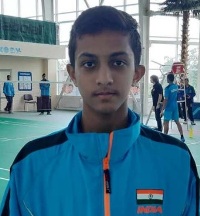
Pullela Sai Vishnu
Enrolment No. 470002203027
He was a National champion in the sub-junior category 2018. Badminton World Federation Ranking 539
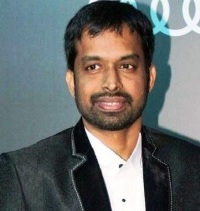
Padma Bhushan Pullela Gopichand
Padma Bhushan Pullela Gopichand, International Badminton Player & National Coach and father of Pullela Gayatri Gopichand & Pullela Sai Vishnu who successfully completed Secondary & Senior Secondary course of NIOS.
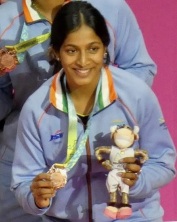
Pullela Gayatri Gopichand
Enrolment No. 470002172034
Won Silver Medal in Mixed team and Bronze Medal in Woman's Doubles in Birmingham Commonwealth Games 2022
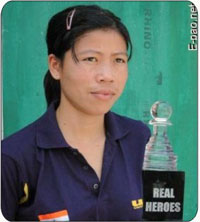
MC Mary Kom
Enrolment No. 12000143210
Winner of Bronze Medal of LONDON Olympics - 2012
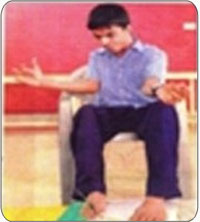
M.C. Akarsh
Enrolment No. 09003392011
Differently abled Draws Painting with Leg

Kavya Madhavan
Enrolment No. 090008103065
Kerala's Leading Actress State Award Winner
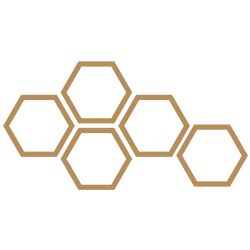
Based on National Curriculum Framework

Highly Engaging facilitator
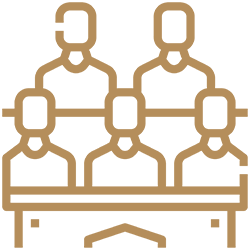
Only 10 learners per class
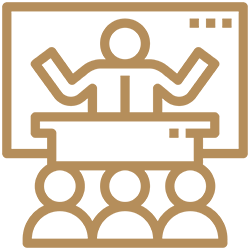
Personal Attention and Care
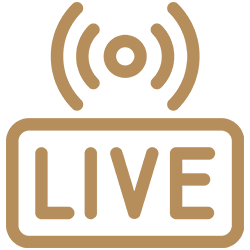
1-2 Hours of Live Engaging Classes, Monday to Friday
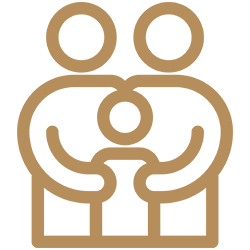
Academic structure and support to parents for stress-free learning
#Being21K
Make Some Rain While The Sun Shines Outside
#Being21K
A Little Play in Between Classes
#Being21K
Why did you choose 21K online school for your children?